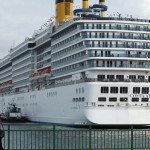CNBC Featured: Decoding affluent Asian millennial travelers

Anthony Kwan | Bloomberg | Getty Images
For Asia’s well-heeled millennial travelers, new experiences are far more appealing than the comfort of organized tours.
“You have to have a lot to excite them,” Amrita Banta, managing director of Agility Research said Thursday during a panel discussion at the Millennial 20/20 summit, the first of its kind in Asia, which debuted in Singapore this week.
Agility Research recently surveyed more than 900 millennial respondents in China, India, Hong Kong, Singapore, Malaysia, Taiwanand South Korea who traveled internationally in the past year, hoping to decode the affluent Asian millennial traveler.
Of the respondents, 61 percent said they wanted a custom experience when sight-seeing, compared to only 38 percent who preferred a packaged, group-led tour.
Nearly 80 percent said they wanted to visit somewhere they had not visited before, while 77 percent said they chose destinations offering new activities and experiences. Their top travel destinations included Hong Kong, Singapore and Tokyo.
Understanding the behavioral patterns of young Asian travelers is crucial given the clout they wield.
Asian millennials are expected to spend $340 billion on international trips by 2020, according to Brand Karma, as the middle class rises and increases spending.
Affluent Chinese households are spending $65,000 on average on tourism in a year, according to a recent study of Chinese millennials.
While the vast majority of Asian millennials, of course, use digital platforms before their trips to plan and book hotels or tours, social media is playing an increasing role, too.
In the Agility survey, 62 percent of the respondents said social media was important to them when researching travel options.
The rise of digital platforms is expected to help Asia dethrone North America as the largest digital travel market in the world next year.
But while experiential traveling increases in popularity, shopping while on vacation is still important, too.
More than half of the respondents said they prefer buying luxury brands during their trips and 44 percent prefer to purchase luxury items at airports.
At “Millennial 2020”, Jayson Goh, managing director of airport operations management at Changi Airport Group, highlighted the changing landscapes of airports. “The airport is now a meeting point, where friends will meet from different countries,” he said.
Changi Airport, frequently cited as one of the best airports in the world, has identified ways to target millennial travelers as it found that the average time spent in airports was increasing.
“Feedback for the service environment is very important,” Goh said. “Millennials go on social media and now even expect a reply, too.”

Also Featured in :

![]()

 Previous Post
Previous Post
